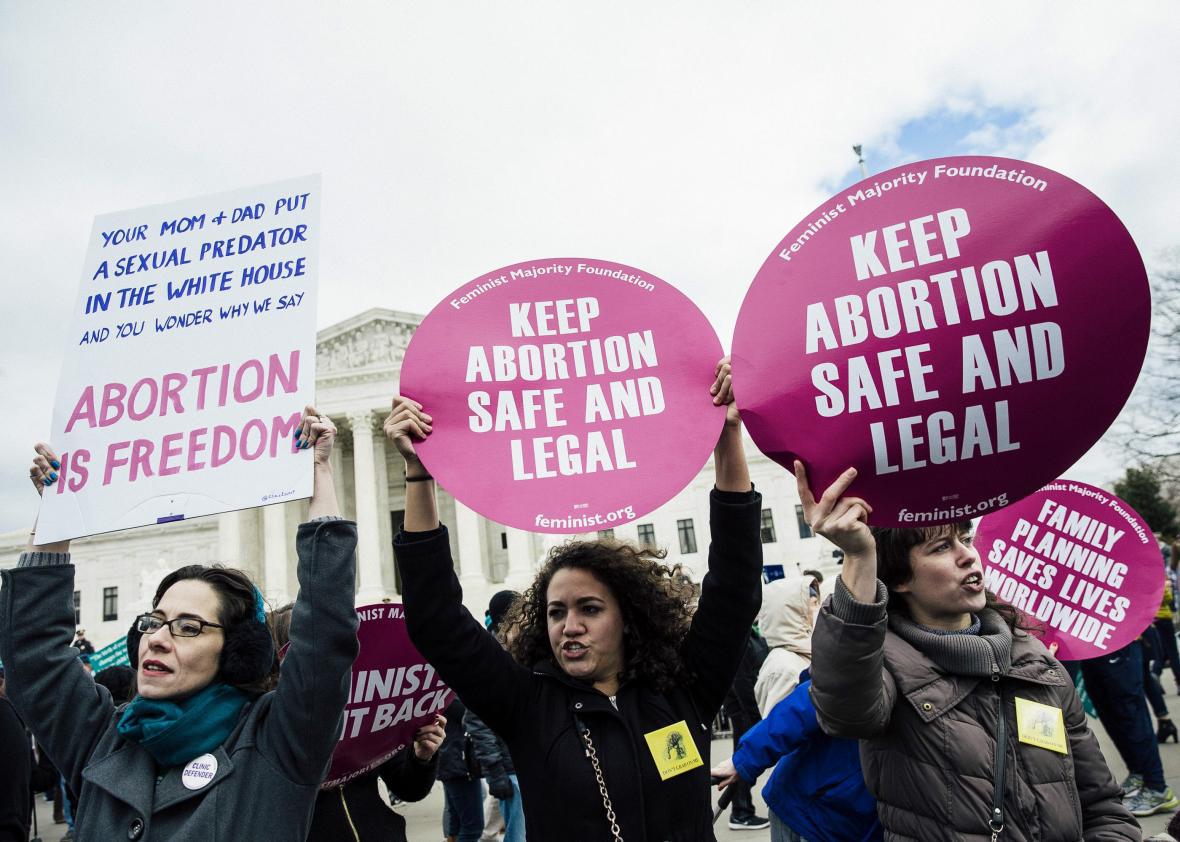The Trump administration’s latest attempt to block undocumented teenagers’ access to abortion fizzled this week after the Justice Department abandoned efforts to compel two young women to carry unwanted pregnancies to term. Nevertheless, the government will continue to seek out ways to assert its authority to prevent undocumented minors from obtaining abortions, as it believes doing so is in their “best interests.” The administration’s hard-line stance all but ensures that the constitutionality of its policies will eventually require Supreme Court resolution.
Every year, thousands of undocumented minors enter the United States illegally and unaccompanied by their parents. Many are fleeing violence and abuse, especially sexual assault. The U.S. government places these minors in federally funded shelters, unless and until it can locate sponsors—typically family members—who can house them. In March, the Office of Refugee Resettlement announced that these shelters could not take “any action that facilitates” abortion without the “direction and approval” of ORR Director Scott Lloyd. An anti-abortion activist, Lloyd has consistently refused to let minors get abortions, sometimes personally urging them to maintain their pregnancies, in possible violation of the law.
In October, the American Civil Liberties Union sued on behalf of one such minor, referred to in court papers as Jane Doe. The U.S. Court of Appeals for the District of Columbia Circuit ultimately ruled that Doe had a constitutional right to obtain an abortion, which she promptly did. Furious, the Justice Department asked the Supreme Court to vacate the D.C. Circuit’s decision. It also asked the justices to sanction Doe’s lawyers, falsely claiming that they made misrepresentations to the government. The Supreme Court has not yet ruled on the appeal. While the appeal is pending, ACLU attorneys have continued to seek judicial certification of a class action on behalf of all undocumented minors faced with Doe’s predicament to enjoin ORR from blocking their access to abortions.
Last Friday, the conflict boiled over once again when the ACLU filed a lawsuit on behalf of two undocumented teenagers who said ORR was preventing them from obtaining abortions. One woman, Jane Roe, was 10 weeks pregnant, and ORR alleged it was on the verge of placing her with a sponsor, thereby washing its hands of her abortion decision. The other woman, Jane Poe, was 22 weeks pregnant and could not legally obtain an abortion if her pregnancy continued much longer. On Monday, a federal judge ruled that the administration must let both women terminate their pregnancies. The Justice Department appealed the ruling to both the D.C. Circuit and the Supreme Court—but only with regard to Roe. Thus, Poe was presumably able to get an abortion. (The DOJ presumably thinks it would have less luck delaying Poe’s abortion since she was so far along in the pregnancy.)
But before the Supreme Court could weigh in, it came to light that Roe is 19 years old. (Roe had thought she was 17, but her birth certificate proved she was two years older.) Because she is a legal adult, the government transferred Roe into the custody of Immigration and Customs Enforcement. ICE guidelines allow detainees to terminate their pregnancies, so this revelation effectively resolved the conflict.
Legally speaking, then, the Jane Roe/Jane Poe saga merely maintained the status quo. The Trump administration believes it can block undocumented minors in federal custody from terminating their pregnancies, the D.C. Circuit does not, and the Supreme Court remains silent on the issue. But the brief court battle did reveal two interesting and interrelated facets of the government’s position.
First, as Georgetown Law professor Marty Lederman points out, the administration has expanded its justification for ORR’s abortion ban. In the Jane Doe case, the DOJ alleged that the government did not want to “facilitate” abortions by allowing minors in federal custody to obtain them. It did not assert an absolute right to prevent Doe from obtaining an abortion. Now, however, the DOJ has claimed the authority to permanently block undocumented minors from terminating their pregnancies. It cites a federal statute that makes the ORR director “responsible” for “ensuring that the interests of the child are considered” with regard to her medical care. According to the DOJ, this “responsibility” allows the ORR director to determine that obtaining an abortion is not in the child’s “best interests,” even if she requests one.
Second, and relatedly, the Justice Department refuses to explain how Lloyd, the ORR director, determined it was in Roe’s and Poe’s “best interests” to carry unwanted pregnancies to term by government mandate. The district court requested an explanation, but the DOJ would not immediately provide one, insisting its reasoning might be privileged. In its filings so far, the DOJ has relied upon the government’s putative ability to “make decisions favoring life over abortion” to justify its actions. It therefore appears that Lloyd, who opposes both abortion and contraception, is imposing his personal views on these women under the pretext of protecting their “best interests.”
The Justice Department’s rapid appeal to the Supreme Court on Monday suggests the Trump administration is itching for a showdown before the justices. It will likely get one soon. More undocumented minors will likely seek abortions in the coming months, and the DOJ clearly plans to reject each request. The ACLU’s class action, as well as the pending petition to vacate the D.C. Circuit’s decision in the Jane Doe case, may also force the issue. DOJ attorneys seem to think they have five votes to let the government decide that banning abortions for undocumented minors is in these teenagers’ “best interests.” If they succeed, the Trump administration will have fatally subverted the constitutional right to abortion access.
